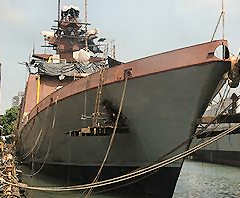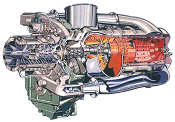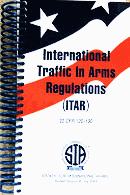 Redmond-based Analytical Methods, Inc., entered into a consent agreement, released earlier this week, with the Directorate of Defense Trade Controls (“DDTC”) in connection with unlicensed provision of defense services to foreign persons and unlicensed exports of software adapted for military purposes. Pursuant to the consent agreement, the company agreed to pay $500,000 in civil penalties, $400,000 of which was suspended provided that this amount is applied to past and future compliance measures. Significantly, this penalty was imposed even though Analytical Methods voluntarily disclosed the export violations.
Redmond-based Analytical Methods, Inc., entered into a consent agreement, released earlier this week, with the Directorate of Defense Trade Controls (“DDTC”) in connection with unlicensed provision of defense services to foreign persons and unlicensed exports of software adapted for military purposes. Pursuant to the consent agreement, the company agreed to pay $500,000 in civil penalties, $400,000 of which was suspended provided that this amount is applied to past and future compliance measures. Significantly, this penalty was imposed even though Analytical Methods voluntarily disclosed the export violations.
The company’s problems started with some confusion on its part as to whether its software, which consists of various programs and modules designed to model the conditions present while flying through air or travelling through water, was controlled by the International Traffic in Arms Regulations (“ITAR”). According to the charging letter, counsel for the company initially filed a voluntary disclosure with the DDTC in 2003 indicating that he was investigating whether an export of one of it’s software modules to an “embargoed entity” in the People’s Republic of China was a violation of the ITAR. Subsequently counsel sent a second letter to DDTC stating that he had determined that the software module that was exported was not ITAR-controlled and that the PRC entity that received the module was not on any prohibited end-user list.
The company then filed a commodity jurisdiction request with respect to that module, which the DDTC determined was, indeed, ITAR-controlled:
Respondent failed to notify the Department immediately after this CJ determination that it had exported ITAR controlled MGAERO-FPI software to the PRC. Instead in March of 2004 the Respondent notified the Department that it had ceased manufacturing and exporting the ITAR controlled MGAERO-FPI software and would not re-register with the Department.
And that right there explains, at least in my view, why this voluntary disclosure led to a significant fine. In this instance, the DDTC obviously was annoyed by what appears to have been a disingenuous response by the company to the CJ determination, something made even more disingenuous because it involved an item that the company had previously told DDTC had been exported to the PRC but was not ITAR-controlled. Subsequent voluntary disclosures of these exports won’t be viewed as favorably when they come on the heels of prior attempts by a company to conceal the exports from DDTC.
Two things about the charging documents, however, are of more cause for concern. First, the DDTC appears to be continuing to expand its efforts to require export licenses for public domain material. In the charging letter, DDTC states:
Section 124.1(a) of the ITAR provides that approval from DDTC is required prior to providing a section 120.9(a) defense service, whether or not the information relied upon in providing the defense service is in the public domain or otherwise exempt from license requirements.
The problem here is that section 120.9(a)(2) defines the provision of technical data as a defense service. These two sections read together with DDTC’s gloss on 124.1(a) in the above-quoted section, means that a “disclosure” of public domain information can be seen as a defense service (and not just as an export of technical data) that would require that a Technical Assistance Agreement (“TAA”) be approved by DDTC prior to the disclosure of the public domain material.
Second, language in the charging documents continue to obscure the boundaries of what is and isn’t a defense service. Although all the software modules involved in the specific charges brought by DDTC were modified for military use and were thus defense articles, DDTC throws into the Consent Agreement this language:
[S]oftware designated as dual-use can be used to provide an ITAR regulated defense service. …
Does this mean that a vendor that provides non-ITAR software, say a CAD program, to a foreign defense contractor, and then trains that contractor on using the software, that this might be a defense service if the contractor uses the software to design a military article? The boundaries here have never been clear and the cited language from the DDTC makes them less clear.

 Posted by
Posted by  Category:
Category: 



 This must be the season for press releases from companies reporting that they have “achieved” ITAR “certification.” I
This must be the season for press releases from companies reporting that they have “achieved” ITAR “certification.” I 


